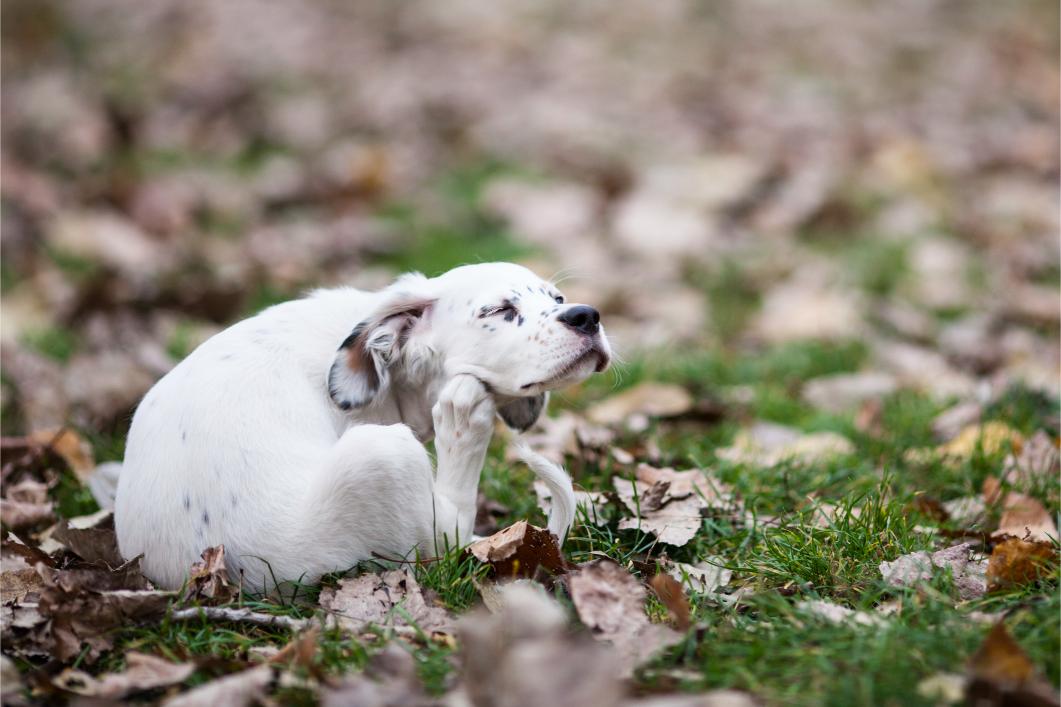Seasonal Allergies in Pets

As the leaves change and the air becomes crisp in Granite Bay, CA, the beauty of fall can bring about discomfort for our furry friends. Seasonal allergies in pets are a common issue during this time of year, and as a pet owner, it’s important to recognize the signs and know how to help your pet feel better. Bayside Animal Hospital is here to guide you through identifying and treating fall allergies in pets, ensuring they enjoy the season as much as you do.
Recognizing the Signs of Fall Allergies in Pets
Seasonal allergies can affect pets much like humans, with symptoms ranging from mild to severe. Here’s what you should watch for:
- Excessive Scratching and Licking: One of the most common signs of allergies in pets is persistent itching. If your pet is scratching or licking more than usual, especially around the ears, paws, or belly, it could indicate an allergic reaction.
- Red or Inflamed Skin: Allergies can cause your pet’s skin to become irritated, leading to redness, swelling, or even sores. Check areas like the armpits, groin, and under the tail where irritation is often most noticeable.
- Runny Eyes and Nose: Just like people, pets can experience watery eyes and a runny nose when dealing with seasonal allergies. If you notice your pet sneezing more frequently or having a discharge from the eyes or nose, allergies might be the culprit.
- Ear Infections: Recurrent ear infections, especially in dogs, can indicate an underlying allergy. If your pet’s ears seem inflamed, have an unpleasant odor, or if your pet is shaking their head frequently, it’s time for a vet visit.
- Respiratory Issues: In some cases, pets may develop coughing, wheezing, or difficulty breathing due to allergens in the air. This is less common, but should be addressed immediately.
Common Fall Allergens for Pets
Understanding what triggers your pet’s allergies can help in managing their symptoms. During the fall, several environmental factors can lead to allergic reactions:
- Pollen: Trees, grasses, and weeds release pollen in the fall, which can be a major irritant for pets. Even though we think of spring as pollen season, fall brings its own set of pollen-producing plants.
- Mold: Damp, fallen leaves are a breeding ground for mold, which can cause allergic reactions in both cats and dogs. Mold spores can easily become airborne and affect your pet.
- Dust Mites: As we start using heaters in the cooler months, dust mites can become more active, potentially triggering allergic responses in sensitive pets.
How to Treat and Manage Seasonal Allergies in Pets
If you suspect your pet is suffering from fall allergies, there are several steps you can take to provide relief:
- Regular Baths: Bathing your pet with hypoallergenic shampoo can help remove allergens from their fur and soothe irritated skin. Be sure to dry them thoroughly to prevent any moisture-related issues.
- Frequent Grooming: Regular brushing can reduce the amount of pollen and other allergens that get trapped in your pet’s coat. It’s also a good idea to wipe their paws after walks to prevent them from bringing allergens into the house.
- Medications: Over-the-counter antihistamines may provide relief for mild allergy symptoms. However, always consult your veterinarian before administering any medication to ensure it’s safe and appropriate for your pet.
- Dietary Supplements: Omega-3 fatty acids and other supplements can help strengthen your pet’s skin barrier and reduce inflammation, making them less susceptible to allergens.
- Environmental Control: Keeping windows closed, using air purifiers, and frequently washing your pet’s bedding can minimize their exposure to allergens. You might also consider limiting their outdoor time during peak pollen hours.
When to See the Veterinarian
While there are many ways to manage your pet’s allergies at home, it’s important to know when to seek professional help. If your pet’s symptoms persist despite your efforts, or if they develop severe reactions like difficulty breathing, it’s time to consult with the veterinarians and staff at Bayside Animal Hospital. Our veterinarians can provide a comprehensive examination, recommend appropriate treatments, and even perform allergy testing to identify specific triggers.
Make This Fall Comfortable for Your Pet
At Bayside Animal Hospital, we understand how frustrating seasonal allergies can be for you and your pet. If you notice any signs of discomfort or if your pet’s allergies are interfering with their daily life, don’t hesitate to contact us. Call our office today to schedule a wellness appointment, and let us help your pet enjoy a happy, healthy fall season.


